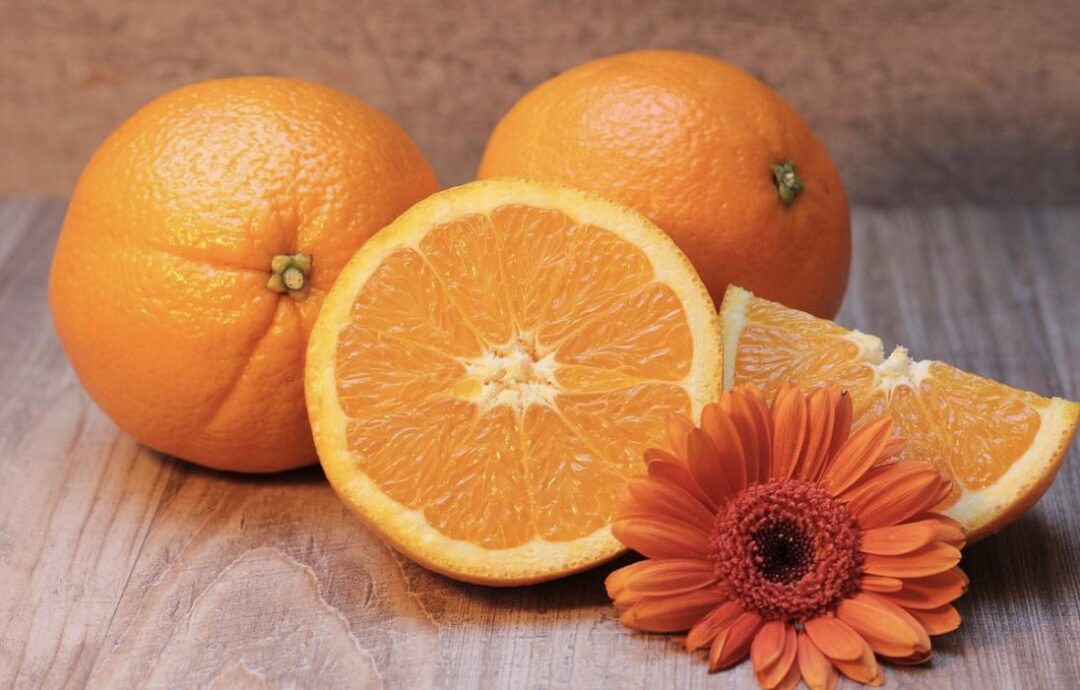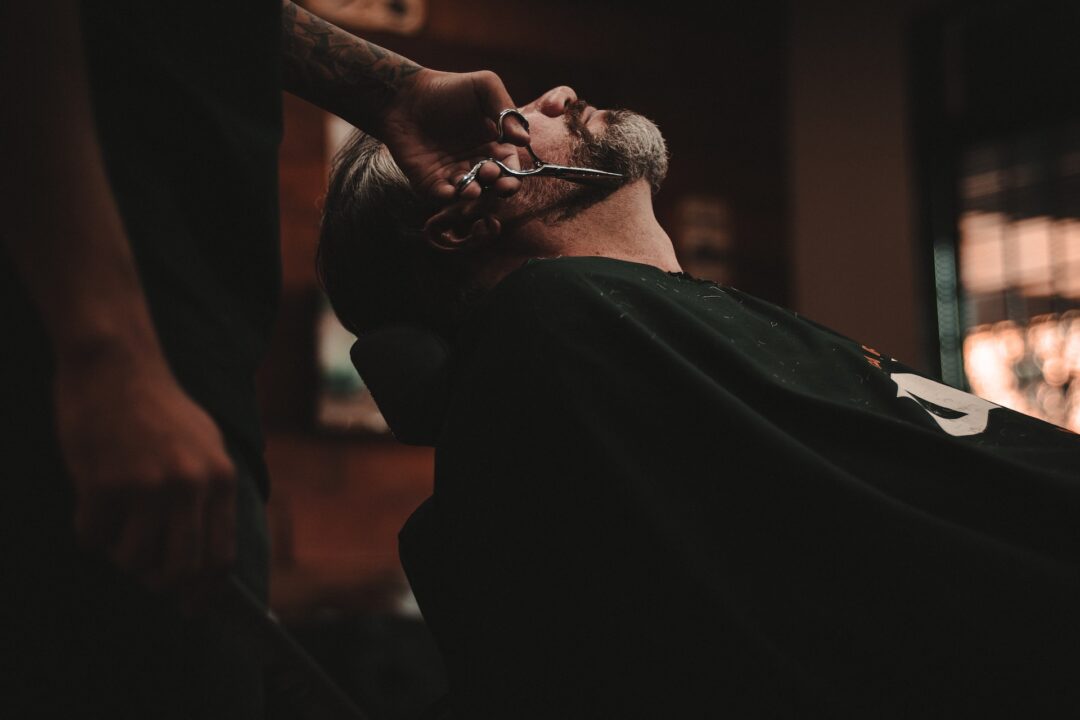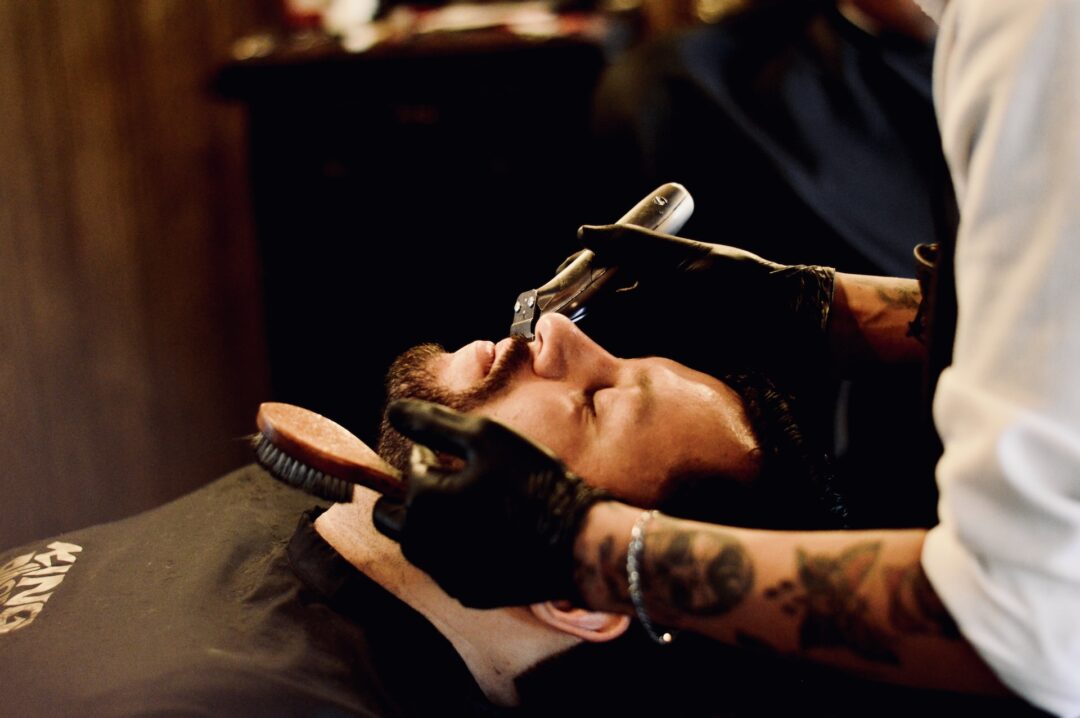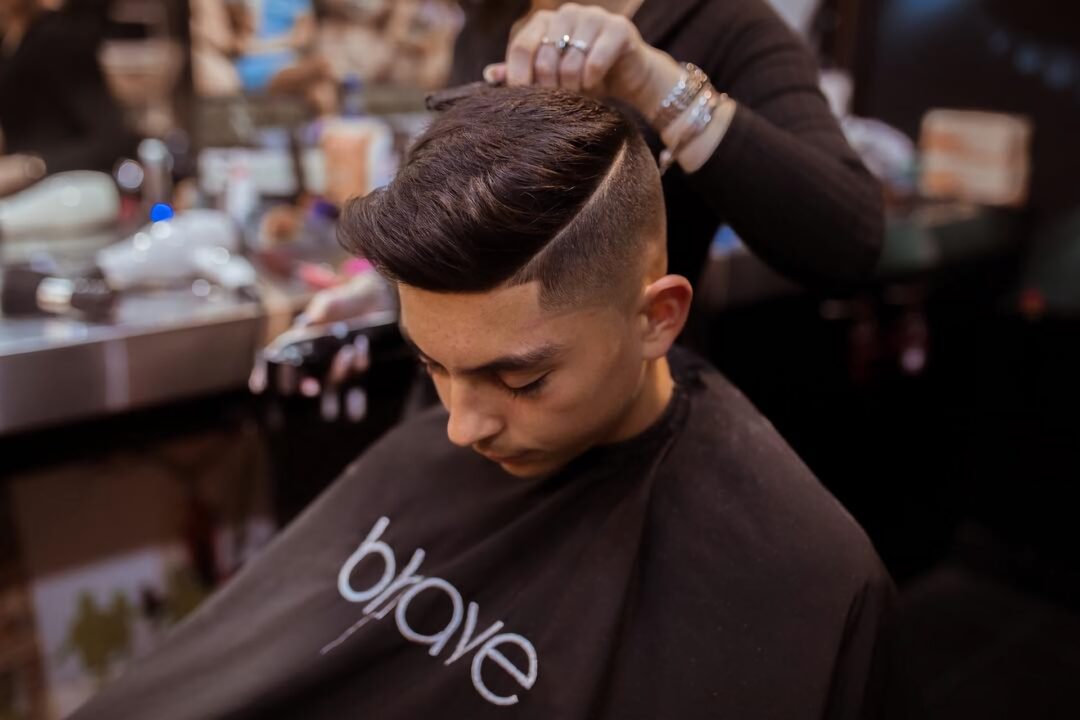In the world of grooming, the allure of a thick, robust beard has always been a sign of masculinity for many. It’s no surprise then that a burgeoning number of men are in search of ways to cultivate that ideal beard. Recent years have seen a proliferation of vitamins and supplements claiming to be the magic elixir for beard growth. But the crucial question remains: do they genuinely work? And to understand this, one must first decipher the science of facial hair growth.
The Intricate Science Behind Facial Hair
Every beard journey begins with understanding the hormones that propel this growth. Androgens, a group of steroid hormones, play a pivotal role. Their levels and balance within the body are crucial for beard health. In fact, studies have revealed that androgens can indeed kick-start hair follicle growth, even in those who are genetically predisposed to have lower androgen levels.
But androgens are just part of the story. Other hormones, especially testosterone and its offshoot, dihydrotestosterone (DHT), significantly impact hair growth. The relationship
between hair growth and DHT is multifaceted. While DHT has been linked to hair thinning and loss on the scalp, it paradoxically appears to encourage beard growth. Some research even indicates that men with lush beards might have elevated DHT levels in comparison to their lesser-bearded counterparts.
Genetics, Epigenetics, and Their Influence
Beyond the hormonal aspect, genetics reign supreme in determining one’s beard growth capabilities. The genetic code, a legacy passed down generations, largely dictates whether one can grow a beard like a lumberjack or remain forever baby-faced.
However, there’s a glimmer of hope in the emerging science of epigenetics. Epigenetics studies how our behaviors and environment can cause changes that affect the way our genes work. It suggests that while we can’t alter our DNA structure, our lifestyle choices — think diet, exercise, stress levels, and more — can influence how those genes are expressed. This intertwining of genetics, hormonal balance, and external factors creates a complex web, but one that’s rife with possibilities for those seeking to enhance their beard growth.
Vitamins, Minerals, and Their Potential for Boosting Beard Growth
The link between nutrition and hair health is undeniable. Several vitamins and minerals have been identified as potential boosters for hair growth. But how do they fare specifically for beards?
The Interplay of Nutrition and Beard Health
Facial hair growth, though largely determined by genetics, is also significantly influenced by one’s nutritional intake. The body requires specific vitamins and minerals to facilitate various processes, including hair growth. This importance of diet cannot be emphasized enough, especially when seeking that full, illustrious beard. Let’s delve deeper into how these essential nutrients can be the game-changers in the world of beard grooming.

- Vitamin A: The vibrancy of carrots, the lushness of leafy greens, and the radiant hues of red bell peppers all share a common trait: they’re loaded with Vitamin A. This nutrient doesn’t just enrich our food palate; it’s pivotal in promoting cell growth. In the context of beards, it might potentially increase the action of androgens, the hormones responsible for facial hair growth. Additionally, the multifaceted roles Vitamin A plays in vision enhancement and immune system bolstering make it indispensable to overall health. B Vitamins: These aren’t just vitamins; they’re the workhorses of metabolism. They help extract energy from the food we consume, ensuring that every cell, including those responsible for hair growth, functions optimally. Notably, the B vitamins’ influence on hair isn’t merely speculative; their role in red blood cell production, which transports oxygen and nutrients to the scalp and hair follicles, underscores their importance. Vitamin C: Beyond its reputation as an immunity booster, Vitamin C is a guardian of skin and hair. It fights oxidative stress, which can prematurely age hair, making it gray and brittle. Its role in collagen synthesis fortifies the skin’s foundation, creating a favorable environment for healthy hair growth. Vitamin E: This vitamin’s topical benefits are a boon for those looking to boost beard growth. By improving blood flow, it ensures that every hair follicle is adequately nourished, creating a lush and vibrant beard. Its antioxidant properties further shield hair from damage.
- Horsetail Extract: Beyond its intriguing name lies a powerhouse of hair benefits. Its richness in silica, a mineral known to strengthen hair, makes it a popular choice among those aspiring for a robust mane. There’s growing enthusiasm about its potential in reducing hair loss.
- Zinc and Copper: Both these minerals, though required in varying quantities, have profound effects on hair health. While zinc’s interplay with testosterone levels has piqued the interest of researchers, copper’s influence on hair pigment and growth regulation offers exciting avenues for exploration.
While external grooming plays a role, it’s the internal nourishment that often makes the most significant difference. Investing time in understanding and incorporating these vitamins and minerals into one’s diet can pave the way for a beard that’s not just stylish but also the epitome of health.
As men globally strive for that ideal beard, it’s essential to approach the process with a mix of patience, science-backed strategies, and perhaps a touch of hope. While vitamins and supplements offer potential benefits, understanding one’s unique genetic makeup, hormonal balance, and the underlying science can pave the way for a truly magnificent beard.

A Comprehensive Dive into the Art and Science of Beard Growth
In contemporary society, where personal grooming and self-expression are revered, the beard stands as an emblem of style, maturity, and distinction for men. While historically, beards have been symbolic of wisdom and leadership, today, they serve as a testament to personal style and grooming choices. As more men aspire to sport full, flourishing beards, there’s been an upsurge in products and solutions promising that perfect growth. But how many of these claims are rooted in science, and how much is mere marketing jargon?
Decoding the Hormonal Symphony
The body’s internal chemistry, particularly the hormones, serves as the chief conductor in the orchestra of beard growth. As touched upon, androgens, such as testosterone and its derivative DHT, hold the keys to the kingdom of facial hair. Yet, this hormonal interplay isn’t straightforward. For instance, while DHT might seem like the villain in the narrative of scalp hair loss, it’s the hero in the story of facial hair growth. This duality underscores the intricate nature of the body’s hormonal mechanisms and their influence on hair growth.
Beyond Genetics: The Epigenetic Frontier
While genetics provides the roadmap for one’s beard growth potential, epigenetics presents exciting detours and possible shortcuts. Epigenetics, in essence, is the study of biological mechanisms that can switch genes on and off. It underscores the significance of environmental influences — from the food we consume to the air we breathe and the stress we endure — all of which can influence how our genes are expressed.
For instance, a balanced diet rich in certain vitamins and minerals might boost the expression of genes favorable to hair growth. Conversely, chronic stress might stifle these genes, curtailing one’s beard growth potential. The dynamic field of epigenetics offers promising avenues for those eager to influence their genetic destiny, albeit within limits.
A Closer Look at Nutritional Catalysts
Delving deeper into the array of vitamins and minerals that can potentially impact beard growth, it’s worth understanding each nutrient’s specific role:
- Vitamin A: Apart from promoting vision and immunity, Vitamin A assists in the production of sebum. This natural oil moisturizes the skin and provides a healthy environment for beard hair to grow.
- Vitamin C: Beyond its antioxidant properties, Vitamin C aids in the production of collagen, a protein vital for hair structure. Moreover, it helps the body absorb iron, a mineral essential for hair growth.
- Vitamin D: Recent studies suggest that Vitamin D can create new hair follicles, making it a vital player in hair maintenance and rejuvenation.
- Biotin: This popular hair growth supplement aids in the production of keratin, a primary component of hair.
- Zinc: Zinc plays a pivotal role in hair tissue growth and repair. It also ensures the oil glands around the follicles work optimally.
- Copper: A lesser-known mineral, copper aids in the formation of collagen and elastin, critical components of the skin’s structure that support hair follicles.
Herbs and Natural Extracts: Ancient Wisdom in Modern Times
Beyond vitamins and minerals, several herbs and natural extracts have been hailed for their potential benefits for hair growth:
The Power of Natural Ingredients in Beard Growth
As the resurgence of beards continues to define modern grooming standards, the search for natural ingredients that can bolster beard health and growth has gained momentum. The trio of Saw Palmetto, Ginseng, and Aloe Vera underscores the harmony between nature and personal care. Let’s delve deeper into their potential benefits.
- Saw Palmetto: Native to the Southeastern United States, Saw Palmetto has long been in the spotlight for its potential benefits for hair health. Researchers posit that its capability to inhibit the enzyme that transforms testosterone into DHT might be the key to its success in combating hair loss. DHT, when present in excessive amounts, can weaken hair follicles, leading to hair thinning. Thus, Saw Palmetto’s role in regulating DHT could be a boon for those seeking a fuller beard.
- Ginseng: An esteemed staple in traditional medicine, particularly in Asian cultures, Ginseng is often lauded for its rejuvenating properties. Recent scientific inquiries suggest that Ginseng’s saponins could have promising effects on hair follicles, thereby promoting hair growth. Furthermore, its anti-inflammatory properties might aid in creating a conducive environment for healthy hair growth, making it an essential ingredient for holistic beard care.
- Aloe Vera: Beyond its well-known soothing properties for sunburns, Aloe Vera is a silent champion for skin and hair health. Its proteolytic enzymes excel in repairing skin cells, which can be pivotal for the health of the underlying beard hair. By nurturing the skin, Aloe Vera paves the way for a strong, healthy beard, acting as a bridge between skincare and beard care.
The Psychological Aspects of Beard Growth
Apart from the physiological factors influencing beard growth, one cannot overlook the psychological dimensions. A beard, for many, is a symbol of masculinity, maturity, and wisdom. It’s no wonder that beard growth products and treatments are in high demand. Yet, it’s essential to approach these solutions with a discerning eye, always prioritizing science over hype. Growing a beard also requires patience. The process can be slow, sometimes fraught with challenges like itchiness or patchiness. Regular care, grooming, and maintenance can help mitigate these issues, but the journey demands perseverance.
Conclusion
The modern era’s fascination with beards is more than just a fleeting trend; it’s a celebration of individuality, strength, and heritage. While science offers us insights into the physiological aspects of beard growth, there’s an art to nurturing and styling it, steeped in personal expression and cultural nuances. This blend of art and science makes the beard journey both a personal and communal experience. Personal, as every individual must understand and cater to their unique facial hair needs, and communal as societies worldwide reconnect with age-old beard traditions and redefine them for the contemporary age. It’s vital to respect this duality, drawing from the wisdom of the past while embracing modern techniques and understandings. Thus, in your pursuit of the perfect beard, always strike a balance between learning from others and listening to your own beard’s narrative. After all, it’s more than just hair; it’s a canvas of your life’s stories, aspirations, and identities. So, cultivate it with love, knowledge, and respect.



